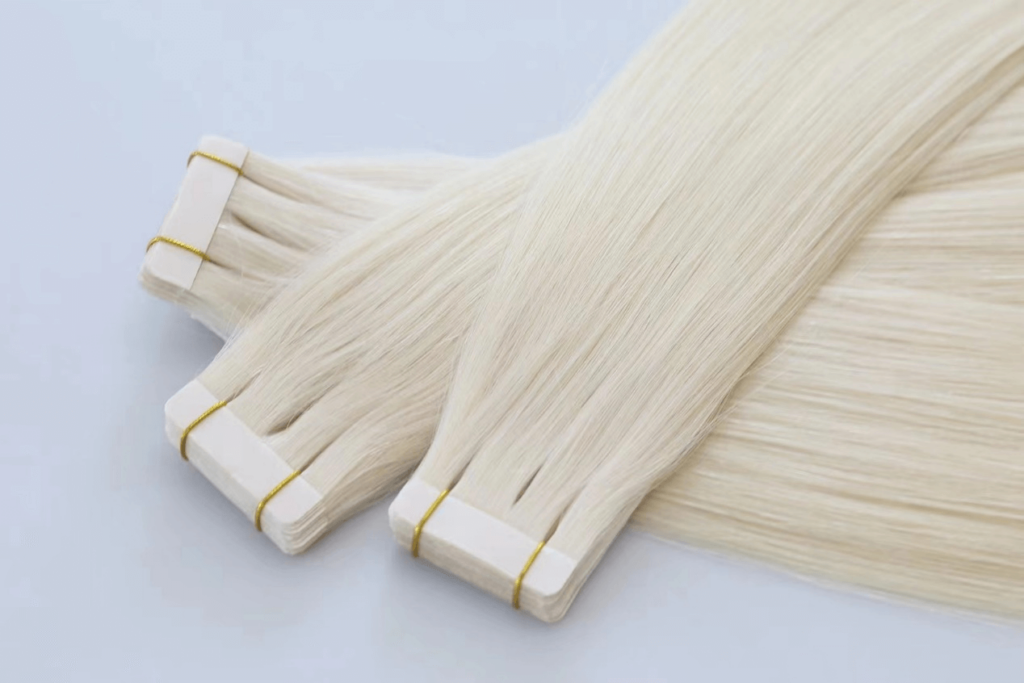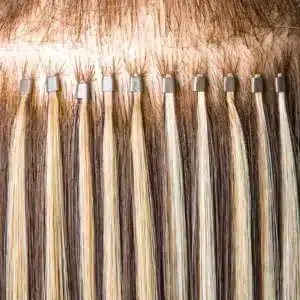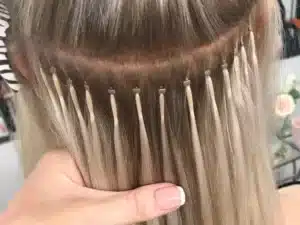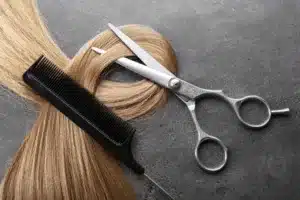Wondering how to source tape-in hair extensions directly from China for your business? Don’t worry, you’re at the right place. We’ve got all the insights you need to make an informed decision.
To import tape-in hair extensions from China, start by conducting research to identify reputable manufacturers. Then, initiate sample orders for quality checks. Once satisfied, proceed to place formal orders, ensuring you negotiate terms like pricing and Minimum Order Quantity (MOQ). Master logistics by choosing air freight, prepare the necessary documentation, and finally, conduct quality rechecks upon arrival.
We dive deeper into each critical phase, from vetting manufacturers and negotiating terms to logistics and post-arrival quality checks. Our comprehensive guide leaves no stone unturned, setting you on the path to becoming an industry leader in tape-in hair extensions.

Identifying Reputable Manufacturers
Before you can even consider scaling your business, finding a manufacturer that aligns with your brand’s quality and ethical standards is paramount. Here’s your roadmap to sourcing a reliable manufacturer:
Conducting Initial Research
Use Google and specialized industry directories to create a shortlist of potential manufacturers.
Leverage your network for referrals from others in the hair extension business.
Factory Audits
If you can, make a trip to China to inspect factories firsthand. A physical audit is essential to confirm the manufacturer’s capabilities and standards.
Detailed Communication on Tape-In Hair
Open lines of communication to discuss the nitty-gritty details of the tape-in hair extensions you require.
Hair Quality: Discuss the origin and type of human hair used.
Production Process: Understand how the hair is treated, prepared, and assembled.
Specifications: Discuss dimensions, weight,width and any customization options.
Longevity: Ensure that the product’s life aligns with your brand’s promise.
Color & Length Options: Confirm the availability of various shades and lengths to offer a comprehensive product line.
Cooperating Terms
The last but equally crucial step is learning the terms of your agreement.
Pricing: Have a frank conversation about cost structures and volume discounts.
MOQ (Minimum Order Quantity): Agree on a minimum number of units for the first order, keeping scalability in mind.
Quality Control Measures: Make specific inquiries about quality control procedures, warranties, and return policies.
Payment Terms: Discuss payment timelines, methods, and any credit options.
Contracts: Once you’ve verbally agreed on terms, get everything down on paper.

The Sample Orders and Formal Orders
The Imperative of Sample Orders
In the highly competitive and quality-sensitive market of tape-in hair extensions, sample orders are non-negotiable—they are your preliminary quality assurance test. They offer a tangible demonstration of what the manufacturer can provide.
Quality Checks: To ensure alignment with the quality of hair extensions you sell, the sample must undergo a series of tests. These tests can include washing, wearing, and tangling test to confirm that it meets your stringent quality requirements.
Tape Testing: It’s crucial to assess the adhesive’s effectiveness in varying conditions—be it humidity, heat, or pressure—to ensure a robust hold that doesn’t compromise the integrity of natural hair.
Color Validation: Given that color is a key selling point in the industry, the sample order is your opportunity to evaluate the color lasting and blending capabilities of the extensions.
The Imperative of Repeated Sample Testing:
Hair extensions are not like standard products; the difference in quality grades can be subtle upon visual inspection. Therefore, multiple rounds of testing across different batches are essential. To save time, conducting parallel tests across multiple samples is advisable.

Transitioning to Formal Orders
Transitioning from sample to formal orders is akin to moving from the qualifying to the final race—it’s where the real challenges and rewards lie.Key Focus Areas:
Quality Consistency: To ensure quality consistency, you may want to employ several strategies: consider involving an independent third party to conduct periodic quality audits. Or batch testing, upon receiving each shipment, test a random sampling of the tape-in hair extensions to ensure they meet your quality specifications.
Volume vs. Price:The tape-in hair extension industry typically benefits from economies of scale, meaning the more you order, the lower the per-unit cost should be. High-volume orders should naturally translate into more advantageous pricing from the manufacturer. This is also a crucial negotiation point with your suppliers; use your high-volume orders as leverage to secure more favorable pricing terms.
Contract Clarity: Every detail, down to the last strand of hair, must be specified and agreed upon. This includes payment schedules, delivery timelines, and quality checks.
Tailored Specifications: Your formal order must spell out any tailored needs explicitly. Whether it’s a unique curl pattern a stronger adhesive for the tape-in, or colors, the lengths of these custom elements must be documented in the contract.
Contract Revisions and Contingencies: Always account for possible changes or disruptions—whether it’s shifts in demand or supply chain hiccups. Your contract should include clauses that outline how to handle such contingencies.
By meticulously navigating the path from sample to formal orders, you secure a reliable source of high-quality tape-in hair extensions and lay the foundation for a long-term, profitable business relationship. This operational finesse is what sets you apart as a leader in the hair extension industry.

Mastering Logistics and Post-Arrival Checks in Tape-In Hair Extensions
Navigating the World of Logistics
Getting your tape-in hair extensions from the factory floor to your inventory is no simple feat; it’s a multi-step process rife with logistical challenges that you must adeptly navigate.
Sea or Air: Deciding between sea and air freight goes beyond a mere calculation of costs—it’s a strategic choice that must be in sync with your business model. However, it’s worth noting that due to the relatively high value and light weight of tape-in hair extensions, approximately 98% of wholesale brands opt for air freight.
Regardless of your shipping choice, be prepared with the necessary paperwork.
Bill of Lading: Your key document outlining the type, quantity, and destination of the goods.
Commercial Invoice: Required for customs and duties assessment.
Packing List: A comprehensive breakdown of every item in the shipment.
Customs Duties:Yes, it’s the less glamorous part of international business. Be proactive—know the import duties and taxes relevant to your country to avoid any unpleasant surprises. Consult experts or your country’s customs department for precise information.

After Arrival: The Quality Recheck
The arrival of your shipment is not the end of your quality assurance process—it’s an extension of it.
Spot Checks: Randomly select a set of tape-in hair extensions and rigorously test them against your quality benchmarks.
Defect Identification: A thorough visual and tactile inspection can reveal any inconsistencies or defects that escaped the manufacturer’s quality control.
Dealing with Returns and Replacements:If, unfortunately, your shipment doesn’t meet your standards, immediate action is required.
Documentation: Keep a detailed record of any issues, supported by photographs and batch numbers.
Communication: Contact your manufacturer as soon as possible to discuss returns or replacements. Transparency and swift communication are key here.
Distribution: Ready, Set, Sell!
Once you confirm the quality of the arrived goods, it’s time to distribute. Now you’re not merely selling a product; you’re offering verified quality, backed by a meticulous supply chain strategy.
By mastering both logistical complexities and post-arrival quality assurance, you’re not merely a distributor of tape-in hair extensions. You’re a savvy business leader, setting new standards for excellence in this competitive industry.

CONCLUSION
Successfully importing tape-in hair extensions from China is a meticulous process that demands attention to detail at every stage. By investing time and effort in sourcing, quality control, and logistics, you’re not just importing a product—you’re ensuring the integrity and success of your brand in a competitive marketplace. Follow these guidelines to build a sustainable, quality-oriented hair extension business that stands out for its operational finesse and customer satisfaction.




